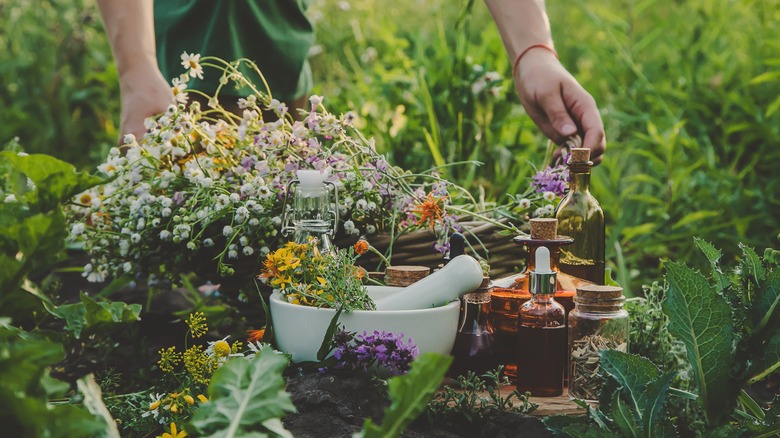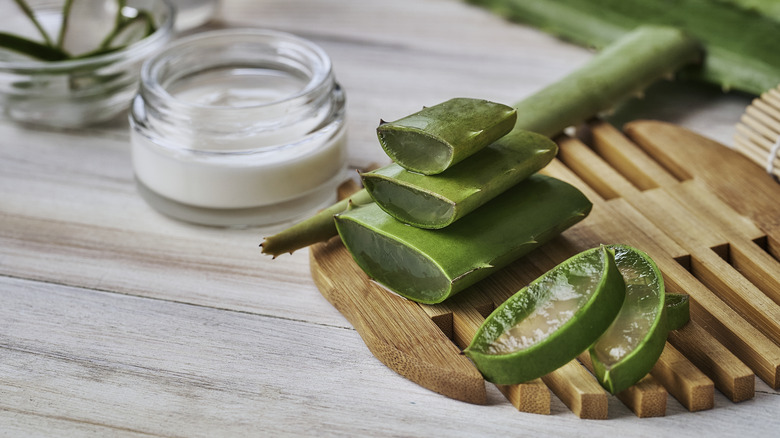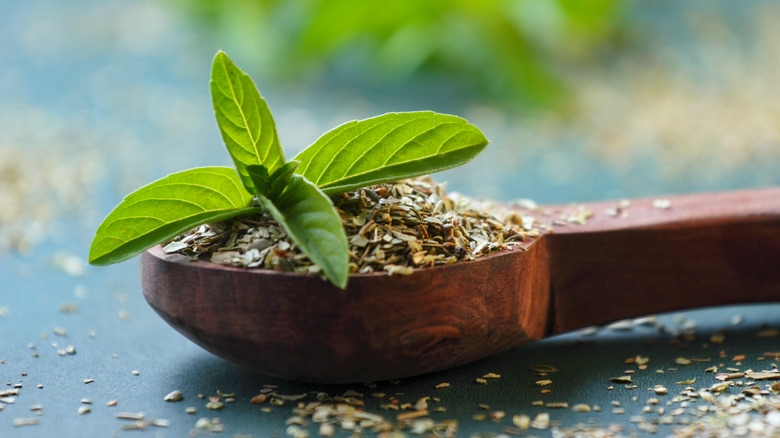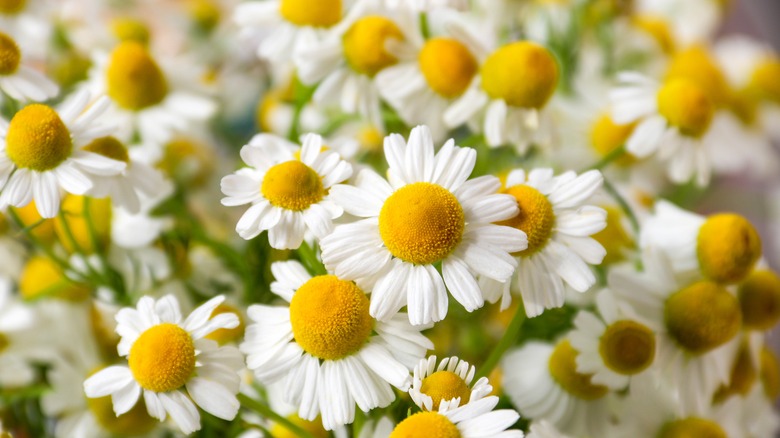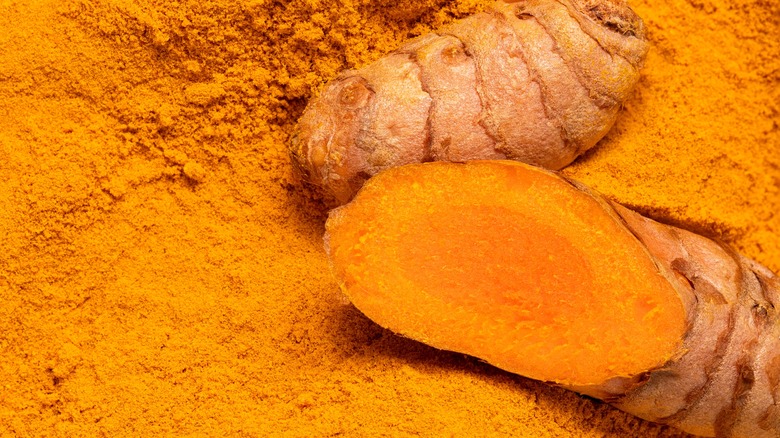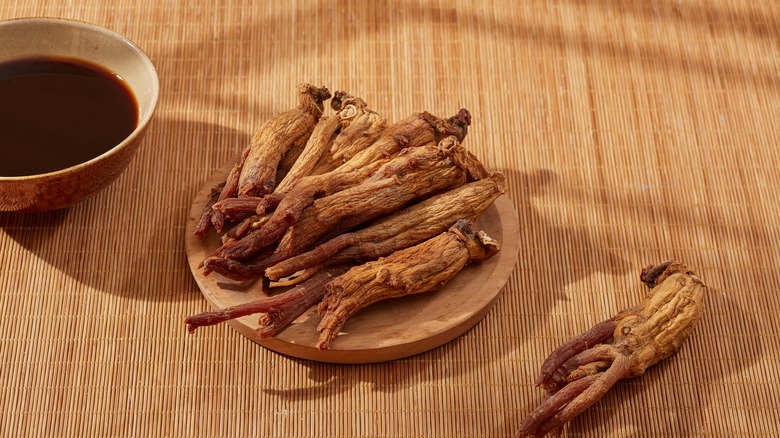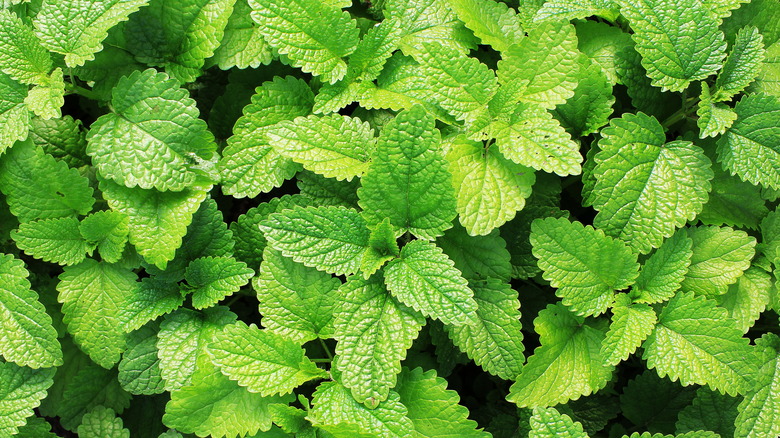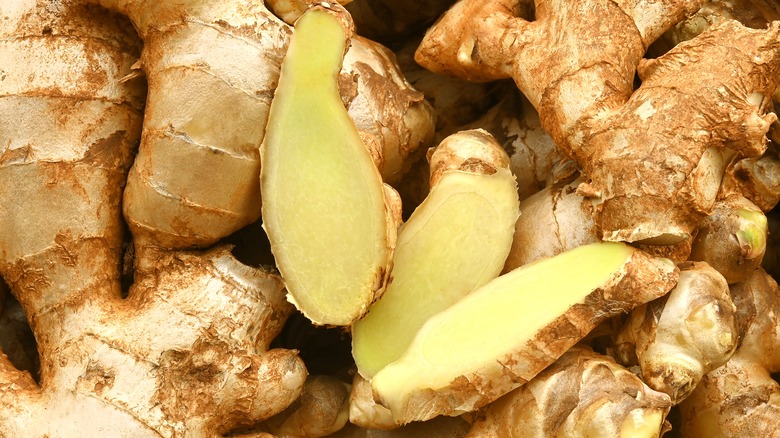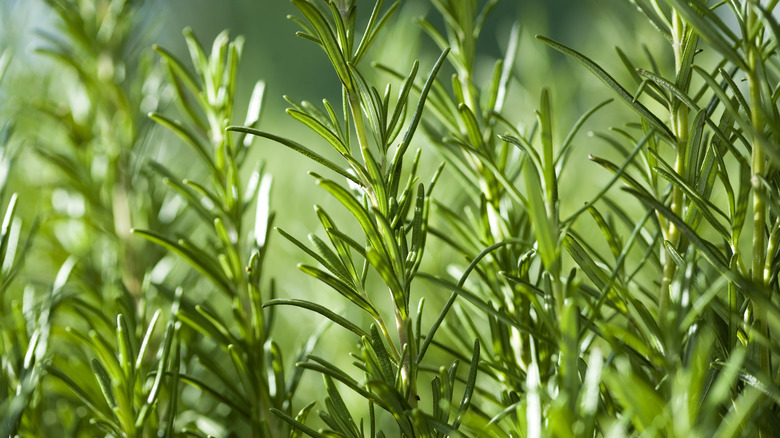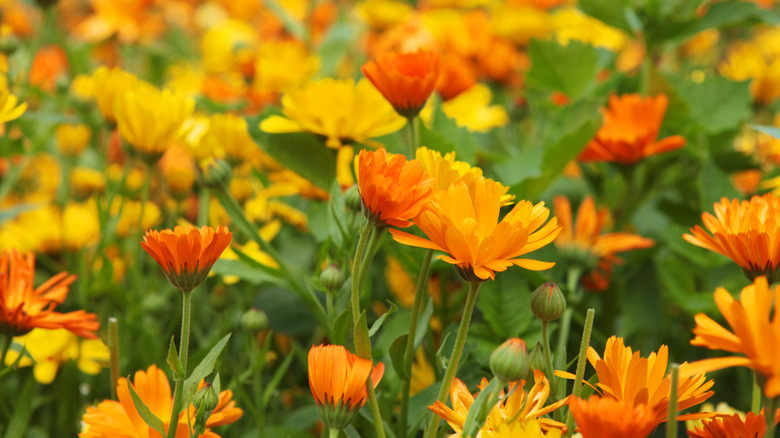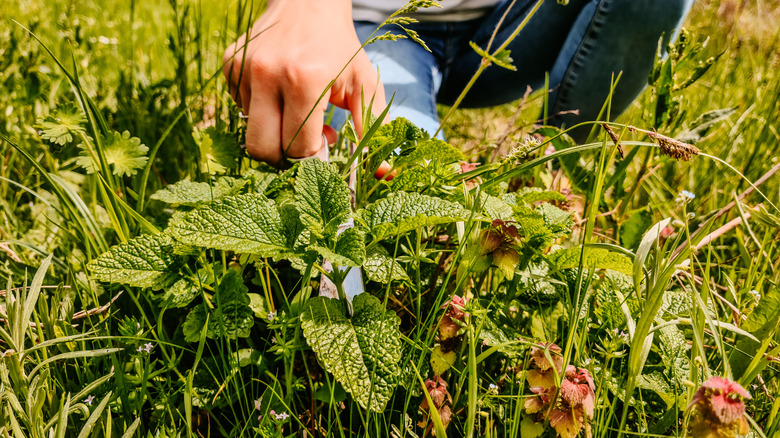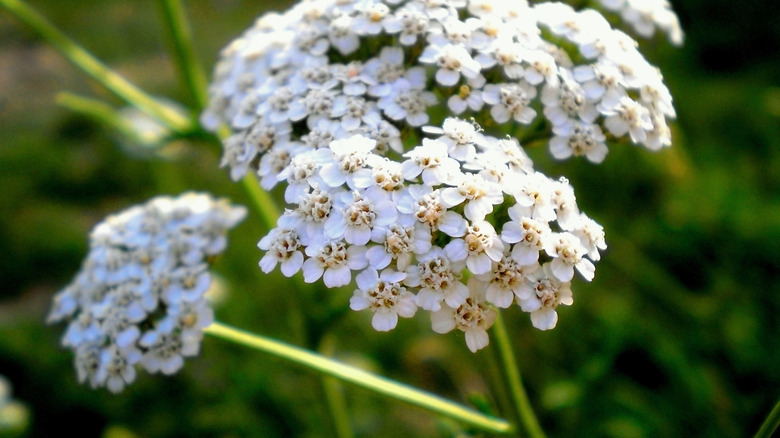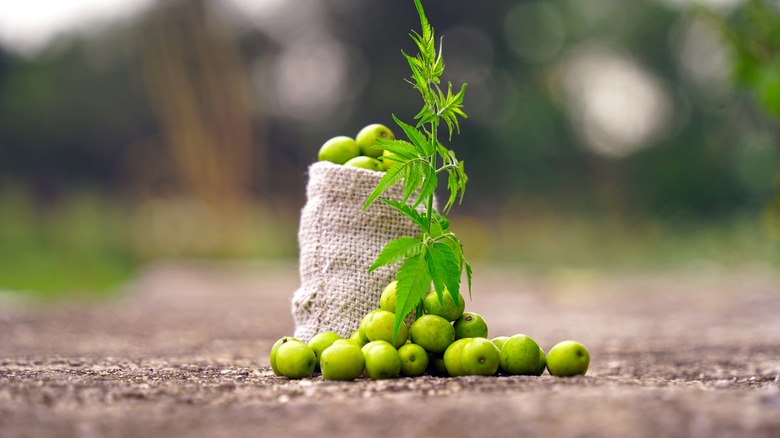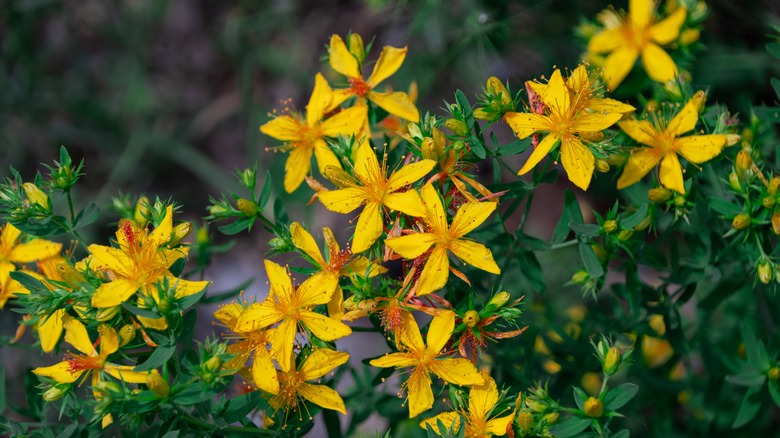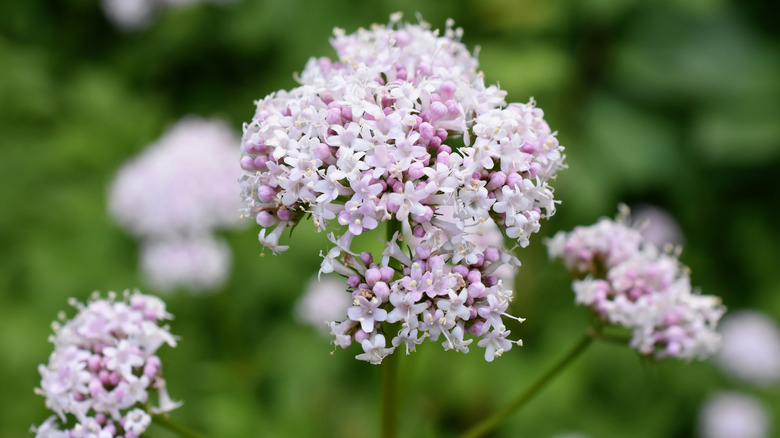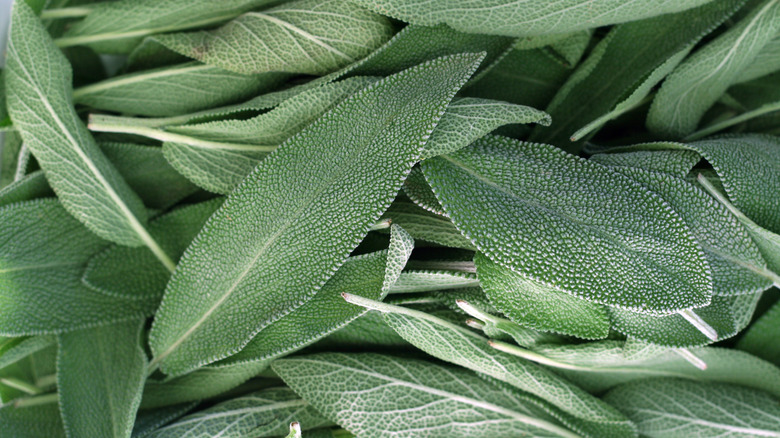20 Medicinal Plants You Can Grow In Your Garden
In a time where the quest for sustainable and natural solutions is gaining momentum, envision your garden not just as a serene sanctuary but as a pharmacy teeming with the remedies nature has to offer. Beyond the conventional notion of flowers and foliage, your garden can become a holistic haven, providing an array of medicinal plants that offer healing properties rooted in diverse cultural traditions.
We'll explore the annals of traditional Chinese medicine, the vibrant landscape of Ayurveda, the profound connection between nature and health in Native American traditions, and the richness of European herbalism and bring them right to your backyard. The cultural diversity embedded in these medicinal treasures not only enhances the pharmacopeia of your garden but also underscores the universal language of healing that has resonated across continents and centuries.
So, let your garden become a crossroads of traditions, a place where the wisdom of ancient cultures converges to create a sustainable, natural, and profoundly therapeutic haven right at your doorstep.
Aloe vera supports skin health
Aloe vera (Aloe barbadensis miller) is a remarkable succulent celebrated for its multifaceted contributions to health and well-being. This resilient plant has earned its place as a green guardian in gardens worldwide. At the heart of aloe vera's acclaim lies a treasure trove of soothing properties, making it an indispensable ally for both skincare aficionados and first aid enthusiasts alike.
In the realm of skincare, aloe vera's emollient qualities make it a staple ingredient in a myriad of beauty products. From creams to lotions and gels, it has demonstrated efficacy in promoting skin hydration, reducing inflammation, and fostering a natural radiance. The succulent's innate ability to penetrate deep into the skin layers ensures a holistic and revitalizing experience, transforming routine skincare into a nurturing ritual.
Beyond the cosmetic allure, aloe vera plays a crucial role in first aid, earning its place as a go-to remedy for minor cuts, burns, and abrasions. The plant's natural antiseptic properties expedite the healing process, while its anti-inflammatory effects provide relief from discomfort. The gel extracted from the fleshy leaves of aloe vera stands as a testament to nature's potent healing capabilities. Its cool, translucent substance is a balm for the skin, renowned for its ability to alleviate a spectrum of skin ailments. Whether it's the soothing touch on a sunburned complexion or the relief it brings to irritated skin, aloe vera emerges as a versatile and gentle healer.
Tulsi demonstrates stress-relieving properties
Tulsi (Ocimum tenuiflorum) is revered as "Holy Basil" in the ancient healing tradition of Ayurveda. In the intricate tapestry of Ayurvedic wisdom, Tulsi stands out for its adaptogenic qualities and stress-relieving properties, symbolizing a harmonious union between nature, spirituality, and healing. The epithet "Holy Basil" is a testament to the profound reverence accorded to Tulsi in Hindu mythology and Indian cultural traditions. Believed to be an earthly manifestation of the goddess Tulsi, the herb holds a sacred status, gracing households and temples alike. Beyond its spiritual significance, Tulsi has found its place in the Ayurvedic pharmacopeia, where it is celebrated for its multifaceted healing attributes.
At the core of Tulsi's acclaim lies its adaptogenic nature. Adaptogens are a class of herbs that assist the body in adapting to stressors, promoting balance in times of both physical and mental strain. In Ayurveda, Tulsi is recognized as an adaptogen par excellence, aiding the body in navigating the intricate dance between environmental challenges and internal equilibrium. This adaptogenic quality extends beyond mere resilience; Tulsi is believed to enhance the body's overall capacity to cope with stress, contributing to a sense of calm and vitality.
Tulsi's stress-relieving properties are not confined to the realm of folklore; scientific studies have substantiated its efficacy. Compounds such as eugenol in Tulsi are known for their anti-stress and anti-inflammatory effects. Whether consumed as an herbal tea, incorporated into tinctures, or used in aromatherapy, Tulsi becomes a therapeutic agent that gently guides the mind and body towards a state of tranquility.
Chamomile can calm your nerves
Chamomile (Matricaria chamomilla), a gentle luminary in the realm of herbal medicine, has long graced gardens and apothecaries with its delicate blooms and profound calming properties. Known as the "calming herb," chamomile has been employed in various cultures as a soothing elixir and has become synonymous with relaxation. One of chamomile's most celebrated applications is in the preparation of teas and tinctures, where its calming influence is harnessed to alleviate stress and promote a sense of well-being.
Brewing chamomile tea is akin to crafting a cup of serenity. The dried flowers, infused in hot water, release a gentle symphony of essential oils, including bisabolol and chamazulene, known for their anti-inflammatory and calming effects. Sipping chamomile tea becomes a ritual of self-care, a moment to unwind and invite tranquility into one's daily routine. Beyond its delightful taste, the tea works as a natural anxiolytic, helping to soothe frazzled nerves and ease the burdens of a hectic day.
Chamomile's sedative properties make it a cherished remedy for those seeking a restful night's sleep. The calming effects extend beyond mere stress relief, gently coaxing the mind and body into a state of relaxation conducive to a deeper, more rejuvenating slumber. Incorporating chamomile into bedtime routines, whether through a warm cup of tea or a tincture, becomes a ritual that signals the body to unwind and embrace the tranquility essential for restorative rest.
Use echinacea to fight colds
Echinacea purpurea, a resplendent harbinger of health, is a vibrant flower celebrated for its immune-boosting prowess, standing tall as a staple in the rich tapestry of Native American herbal traditions. This perennial herb, adorned with striking pink-purple petals and a prominent cone-shaped center, is not just an ornamental gem in gardens but an ally in fortifying the body's natural defenses against ailments.
Nestled within the heart of echinacea purpurea lies a potent blend of bioactive compounds, including flavonoids, essential oils, and polysaccharides. These constituents work in harmony to stimulate the immune system, enhancing the body's ability to fend off infections and maintain optimal well-being. Native American communities, with an intimate understanding of the land and its offerings, have held echinacea in high esteem for generations, incorporating it into medicinal practices that prioritize harmony between nature and health.
Central to Native American herbal traditions, echinacea has been utilized as a powerful remedy to address various health concerns, particularly those related to immune function. Infusions and tinctures crafted from its roots, leaves, and blossoms have been employed to alleviate symptoms associated with respiratory infections, colds, and flu-like conditions. The plant's immune-boosting properties are believed to act as a natural shield, fortifying the body's defenses and expediting recovery.
Turmeric boasts anti-inflammatory properties
Turmeric (Curcuma longa) stands as a golden sentinel in the realm of herbal treasures, revered for its vibrant hue and a remarkable array of health-enhancing properties. This spice, originating from the curcumin-rich rhizomes of the Curcuma plant, has transcended culinary applications to become a cornerstone of holistic wellness, particularly in the ancient healing tradition of Ayurveda.
At the heart of turmeric's allure lies its rich content of curcumin, a polyphenolic compound that imparts the spice with its characteristic golden color. More than just a culinary delight, curcumin boasts potent anti-inflammatory and antioxidant properties, making turmeric a revered ally in the pursuit of natural well-being. Its anti-inflammatory prowess is believed to pacify imbalances within the body, alleviating conditions associated with inflammation. Ayurvedic practitioners harness turmeric to address a spectrum of ailments, ranging from joint pain to digestive issues, viewing it as a therapeutic powerhouse that harmonizes the body's internal dynamics.
As a potent antioxidant, turmeric also lends its support to the body's defense against oxidative stress. This quality makes it a valuable component in Ayurvedic formulations aimed at promoting overall vitality and longevity. The spice's ability to neutralize free radicals and curb inflammation contributes to its role in preventive health, positioning turmeric as not just a treatment but a proactive measure for sustaining well-being.
Ginseng can invigorate the body and mind
Ginseng (Panax ginseng), a revered botanical gem in the realm of traditional Chinese medicine, emerges as a prized herb esteemed for its extraordinary ability to invigorate the body, enhance vitality, and combat fatigue. Nestled in the shaded forests of Eastern Asia, this perennial plant, characterized by its fleshy roots and distinctive leaves, holds a sacred status in the ancient pharmacopeia, embodying a legacy of holistic wellness that spans millennia.
At the heart of ginseng's acclaim lies a complex blend of bioactive compounds known as ginsenosides, which are concentrated in the plant's roots. According to a research article published in Public Health Nutrition, these compounds are believed to exert adaptogenic effects on the body, assisting it in adapting to stressors and promoting a dynamic equilibrium. Traditional Chinese medicine practitioners have long harnessed the power of ginseng to fortify the vital energy, or Qi, within the body, viewing it as a panacea for fostering resilience and combating the insidious onset of fatigue.
Respected as a symbol of longevity and vitality, ginseng has been cherished not only for its physiological benefits but also for its role in fostering spiritual balance. In traditional Chinese medicine, ginseng is prescribed to address a spectrum of health concerns, ranging from physical fatigue and mental exhaustion to stress-induced ailments. It is thought to bolster the immune system, improve cognitive function, and enhance overall stamina, positioning it as a comprehensive tonic for the body and mind.
Peppermint can relieve pain
Peppermint (Mentha × piperita), a refreshing and aromatic herb, extends far beyond its role as a culinary delight, weaving its invigorating essence into the fabric of herbal medicine. The active component that imbues peppermint with its characteristic flavor and therapeutic properties is menthol. This natural compound possesses a cooling and soothing effect, making peppermint a go-to remedy for various ailments. One of its primary roles lies in promoting digestive health, where the herb's carminative properties aid in relieving indigestion, bloating, and discomfort. Whether sipped as a peppermint tea or incorporated into culinary creations, the herb becomes a flavorful tonic for the digestive system.
Peppermint's ability to alleviate headaches is another facet of its healing repertoire. The herb's natural analgesic properties, combined with its muscle-relaxant effects, make it a valuable remedy for tension headaches and migraines. Inhaling the invigorating aroma of peppermint essential oil or sipping on peppermint tea can provide a welcome sense of relief, offering a natural alternative to over-the-counter pain relievers.
Practice aromatherapy with lavender
Lavender (Lavandula spp.), with its elegant spikes of fragrant blooms, stands as an enchanting muse in the world of botanical wonders. Beyond its visual allure, lavender is celebrated for its aromatic symphony and holds a special place as a therapeutic powerhouse, known for its calming effects and widespread use in the ancient art of aromatherapy. The intoxicating fragrance emitted by lavender is a testament to the myriad of essential oils contained within its delicate blossoms. Among these oils, linalool and linalyl acetate take center stage, giving lavender its distinctive scent and endowing it with properties that extend far beyond mere olfactory pleasure.
One of lavender's most celebrated attributes is its ability to induce a profound sense of calm and relaxation. Whether diffused in essential oil form, incorporated into sachets, or enjoyed in the form of dried bouquets, lavender has become a go-to remedy for those seeking solace in the gentle embrace of its aromatic tendrils. As detailed by a research article published in Evidence-Based Complementary and Alternative Medicine, inhalation of lavender essential oil has been shown to modulate the autonomic nervous system, reducing stress levels and promoting a tranquil state of mind.
Beyond its psychological benefits, lavender possesses additional therapeutic qualities. Its anti-inflammatory and antimicrobial properties make it a valuable addition to skincare regimens, where it contributes to the healing of minor wounds and soothes skin irritations. The versatility of lavender extends to culinary applications as well, adding a floral note to a myriad of dishes and beverages.
Garlic is an immune-boosting powerhouse
Garlic (Allium sativum) is a pungent and indispensable kitchen companion. Beyond its ability to elevate the flavor profile of dishes, garlic stands as a botanical powerhouse endowed with formidable antibacterial and antiviral properties. The medicinal properties of garlic are attributed to its rich array of sulfur-containing compounds, most notably allicin. When garlic is crushed or chopped, allicin is released, and it is this compound that bestows upon garlic its distinct aroma and, more importantly, its remarkable therapeutic qualities. The antibacterial and antiviral effects of allicin have been studied extensively, as detailed in an article published in BioMedicine, showcasing garlic as a formidable weapon against a spectrum of pathogens.
Garlic's antibacterial properties make it a valuable component in the arsenal against various bacterial infections. From common ailments like colds and flu to more serious bacterial infections, garlic's ability to inhibit the growth of bacteria has been acknowledged in both traditional and modern medicine.
In addition to its antibacterial prowess, garlic's antiviral properties have garnered attention in the quest for natural remedies. Research suggests that garlic may exhibit antiviral effects against respiratory viruses and preventative effects against cardiovascular issues. Whether consumed in raw form, as part of a nutritious meal, or infused into oils and tinctures, garlic becomes a versatile and accessible means of harnessing its immune-boosting potential.
Ginger aids in healthy digestion
Ginger (Zingiber officinale), an ancient root, hailing from Southeast Asia, has journeyed through centuries and diverse cultures. At the core of ginger's medicinal acclaim lies a bioactive compound known as gingerol. This constituent is responsible for the root's characteristic pungency and is also credited for its potent anti-inflammatory and antioxidant properties. Ginger's anti-inflammatory effects make it a sought-after remedy for conditions marked by inflammation, ranging from joint pain to inflammatory digestive disorders.
One of ginger's primary roles is in promoting digestive health. Traditional medicine systems, including Ayurveda and traditional Chinese medicine, have long harnessed ginger's ability to alleviate digestive discomfort. Consumed as a spice, tea, or in various culinary creations, ginger aids in the digestion process by promoting the secretion of digestive enzymes and reducing inflammation in the gastrointestinal tract. Its carminative properties help alleviate bloating, gas, and nausea, making it a go-to remedy for soothing an upset stomach. Ginger has been recognized for its potential to mitigate nausea and vomiting, particularly in cases of motion sickness, pregnancy-related morning sickness, and chemotherapy-induced nausea. The root's influence on the nervous system, combined with its anti-inflammatory effects, contributes to its effectiveness in managing nausea.
In addition to its digestive virtues, ginger's anti-inflammatory properties have broader implications for overall health. Chronic inflammation is implicated in various health conditions, from cardiovascular diseases to autoimmune disorders, and ginger emerges as a natural ally in mitigating inflammation and promoting a balanced inflammatory response.
Rosemary can aid cognitive function
Rosemary (Rosmarinus officinalis), a fragrant and evergreen herb, is oft celebrated for its cognitive benefits. Beyond its ability to enhance culinary delights, rosemary is esteemed for its potential to uplift the mind and improve memory. At the heart of rosemary's cognitive benefits lies a remarkable array of compounds, including rosmarinic acid and ursolic acid, that contribute to its therapeutic properties (via an article published in Nutrition Today). These bioactive constituents are believed to possess antioxidant and anti-inflammatory effects, which can positively impact brain health and cognitive function.
Rosemary's association with memory enhancement dates back to ancient times. In ancient Greece and Rome, scholars adorned themselves with rosemary garlands during examinations, believing that the herb could bolster memory and concentration. Modern research has lent credence to this age-old belief, suggesting that inhaling the aroma of rosemary essential oil may lead to improved cognitive performance, including enhanced memory retention and alertness. The aromatic essence of rosemary is thought to stimulate the production of acetylcholine, a neurotransmitter associated with memory and learning. Inhaling the herb's fragrant bouquet or incorporating it into teas and infusions becomes a sensory ritual that engages not only the taste buds but also the olfactory senses, potentially contributing to a heightened cognitive state.
Beyond its potential memory-enhancing effects, rosemary has also been investigated for its role in mood regulation. The inhalation of rosemary essential oil is believed to have mood-boosting properties, fostering a sense of clarity and relaxation that can positively impact cognitive performance.
Calendula can remedy a multitude of skin conditions
Calendula (Calendula officinalis), also known as marigold, unveils a treasure trove of therapeutic properties, particularly in the realm of skincare. The radiant hues of calendula's petals, ranging from warm yellows to deep oranges, are not merely a visual delight but also indicative of the bioactive compounds within. Calendula is rich in flavonoids, triterpenoids, and essential oils, contributing to its anti-inflammatory, antifungal, and antimicrobial properties.
One of the primary applications of calendula is in soothing inflammation and promoting skin healing. Its anti-inflammatory effects make it an ideal remedy for various skin conditions, including dermatitis, eczema, and minor irritations. Calendula-infused creams, salves, and ointments are often employed to alleviate redness, swelling, and discomfort, providing a gentle and natural solution for sensitive or inflamed skin. Calendula's antifungal properties also make it beneficial in addressing fungal skin infections, such as athlete's foot or candidiasis. The flower's ability to inhibit the growth of fungi contributes to its role in promoting overall skin health.
In addition to its anti-inflammatory and antifungal attributes, calendula is prized for its wound-healing properties. The herb stimulates the production of collagen, enhancing the skin's regenerative capacity and expediting the healing process for cuts, abrasions, and minor wounds. Calendula-infused oils or salves are often applied topically to promote optimal healing without causing irritation.
Lemon balm can soothe the nervous system
Renowned for its calming effects, Lemon Balm (Melissa officinalis), has been cherished for centuries for its ability to alleviate anxiety and stress, offering a fragrant respite for both body and mind. Lemon balm's therapeutic allure lies in a symphony of bioactive compounds, including rosmarinic acid and citronellal, which contribute to its calming and mood-enhancing effects. The herb's gentle yet potent influence on the nervous system has made it a popular choice in herbal medicine and aromatherapy.
Lemon balm's calming effects are often harnessed to alleviate symptoms associated with stress and anxiety. Whether consumed as a soothing tea, incorporated into tinctures, or inhaled as an essential oil, lemon balm has a subtle yet profound impact on the nervous system. It is believed to modulate the activity of GABA receptors in the brain, promoting a sense of relaxation without sedation (via the World Journal of Chemical and Pharmaceutical Sciences).
Beyond its anxiety-reducing properties, lemon balm is valued for its role in improving sleep quality. The herb's calming influence extends to the realm of sleep, where it is often employed to address insomnia and promote restful slumber. Lemon balm tea, sipped before bedtime, becomes a fragrant and comforting ritual, inviting tranquility into the nighttime routine.
Yarrow aids in wound repair
Named after the mythical Greek hero Achilles, who is said to have used yarrow (Achillea millefolium) to treat the wounds of his soldiers during the Trojan War, this herb has earned its place in the annals of herbal medicine.
Yarrow's ability to staunch bleeding and promote the healing of wounds is one of its most celebrated attributes. The herb contains compounds that can help to constrict blood vessels, reducing bleeding and aiding in the coagulation process. Whether applied directly to wounds or utilized in the form of salves and poultices, yarrow has been historically employed to accelerate the natural healing of cuts, scrapes, and bruises.
In addition to its wound-healing properties, yarrow is recognized for its anti-inflammatory effects. The herb's ability to reduce inflammation makes it valuable not only for external applications but also for addressing internal conditions, such as digestive issues and respiratory ailments. Yarrow tea, brewed from its leaves and flowers, is often consumed for its holistic benefits.
Neem can aid in fighting infections
Revered for its diverse therapeutic properties, neem (Azadirachta indica) has been an integral part of Indian medicine and culture for centuries. Nimbin, nimbidin, and azadirachtin stand out as key players in neem's bioactive compounds, as per a study published in Hindawi Limited.
Neem's antibacterial properties make it a powerful ally in combating bacterial infections. Whether applied topically or consumed internally, neem has been historically employed to address conditions ranging from skin infections to internal bacterial imbalances. Neem oil, extracted from the tree's seeds, is particularly valued for its application in skincare, where it aids in the treatment of acne, wounds, and other dermatological issues.
The antiviral properties of neem have also garnered attention, particularly in the context of traditional medicine. The tree's leaves, bark, and seeds are utilized to prepare decoctions, infusions, and oil extracts that are believed to support the body's defense against viral infections. Neem's immune-modulating effects contribute to its role in enhancing the body's natural ability to fend off viral invaders. In addition to its antibacterial and antiviral attributes, neem exhibits potent antifungal properties. This makes it a valuable botanical remedy for addressing fungal infections of the skin and nails. Neem's ability to inhibit the growth of fungi is harnessed not only in traditional medicine but also in modern formulations for skincare and anti-fungal treatments.
St. John's Wort can lift your mood
St. John's Wort (Hypericum perforatum), a radiant and sun-loving herb, takes center stage in the realm of traditional European herbalism, where it is celebrated for its antidepressant properties. Nestled in meadows and along sunlit pathways, this botanical luminary has etched its place in history as a symbol of vitality and healing. Its golden flowers, which bloom around the time of the feast day of St. John the Baptist, lend the herb its evocative name.
The antidepressant properties of St. John's Wort are attributed to a complex interplay of bioactive compounds, with hypericin and hyperforin standing out as key constituents. These compounds are believed to modulate neurotransmitters in the brain, particularly serotonin, dopamine, and norepinephrine, which play crucial roles in mood regulation, as per a review published in Czech and Slovak Pharmacy. St. John's Wort's ability to influence these neurotransmitters has earned it a reputation as a natural remedy for mild to moderate depression and mood disorders.
Despite its therapeutic benefits, it's essential to approach the use of St. John's Wort with caution due to potential interactions with certain medications. Consulting with a healthcare professional before incorporating St. John's Wort into a wellness regimen is advised, especially for individuals taking prescription medications.
Valerian can soothe tension and anxiety
Valerian (Valeriana officinalis), a resilient and unassuming herb, stands as a soothing giant in the realm of herbal remedies. The calming effects of valerian are attributed to a group of compounds, including valerenic acid and valerone, which act on the central nervous system. These compounds interact with gamma-aminobutyric acid (GABA) receptors, the neurotransmitters responsible for calming neural activity. Valerian's influence on GABA receptors results in a relaxation of the nervous system, making it a natural remedy for conditions associated with nervous tension, such as insomnia and anxiety.
Valerian's efficacy in promoting restful sleep has made it a popular choice for individuals struggling with insomnia. Whether consumed in the form of tea, tinctures, or supplements, valerian has been shown in studies to improve sleep quality and reduce the time it takes to fall asleep. Unlike some synthetic sleep aids, valerian is believed to induce sleep without causing the grogginess often associated with conventional medications.
Beyond its role in sleep support, valerian is employed to alleviate symptoms of anxiety. The herb's anxiety-reducing effects are believed to stem from its ability to modulate neurotransmitters in the brain, promoting a sense of calm and relaxation. Valerian is often included in formulations aimed at managing stress and anxiety, offering a natural alternative to pharmaceutical interventions.
Ashwagandha can help to manage stress
The term "ashwagandha" (Withania somnifera) is derived from Sanskrit, with "ashwa" meaning horse and "gandha" meaning smell. This nomenclature hints at the herb's traditional use, as it is believed to impart the strength and vitality of a horse. Ashwagandha is classified as an adaptogen, a group of herbs revered for their ability to help the body adapt to stressors and restore balance. In Ayurvedic philosophy, ashwagandha is considered a Rasayana, a rejuvenating herb that promotes longevity and vitality. By influencing the adrenal glands and the production of stress hormones like cortisol, ashwagandha becomes a natural ally in mitigating the effects of chronic stress.
The adaptogenic nature of ashwagandha is not confined to stress management; it also extends to supporting the immune system. The herb is thought to modulate immune function, helping the body defend itself against pathogens and maintain overall health.
Thyme can help clear your respiratory tract
Thyme (Thymus vulgaris), a fragrant and versatile herb, boasts antiseptic and expectorant qualities, rendering it a valuable herbal ally in promoting respiratory health. With the added advantage of being easy to grow and adaptable to various climates, thyme becomes an accessible and resilient addition to both gardens and wellness regimens.
At the core of thyme's medicinal profile lie potent compounds such as thymol, carvacrol, and rosmarinic acid. These bioactive constituents contribute to thyme's antimicrobial, anti-inflammatory, and antioxidant effects, making it a multifaceted herb with applications in traditional and contemporary herbal medicine. Thyme's antiseptic properties make it particularly beneficial for respiratory health. The herb is renowned for its ability to combat infections and soothe respiratory discomfort. Thyme-infused teas, steam inhalations, or throat sprays are often employed to alleviate symptoms associated with colds, coughs, and respiratory congestion. The antimicrobial effects of thyme extend not only to bacteria but also to viruses, making it a versatile ally in the defense against respiratory infections.
As an expectorant, thyme facilitates the removal of mucus from the respiratory tract, providing relief for conditions such as bronchitis and coughs. The herb's ability to promote healthy mucus production and assist in its expulsion helps to clear airways and ease breathing. Thyme's expectorant properties are often harnessed in herbal formulations designed to support respiratory function.
Sage promotes cognitive health
Sage (Salvia officinalis) stands as a resilient and multifaceted herb that has been cherished for centuries. The cognitive-enhancing properties of sage are attributed to a diverse array of bioactive compounds, including rosmarinic acid, flavonoids, and volatile oils. These constituents contribute to sage's neuroprotective effects, making it a valuable herb for supporting cognitive function.
In traditional medicine, sage has been historically associated with memory enhancement and mental clarity. According to an article published in Drugs in R&D, the herb's ability to influence acetylcholine levels in the brain, a neurotransmitter crucial for memory and learning, has led to its use in addressing cognitive decline associated with aging. Whether consumed as a tea, tincture, or incorporated into culinary dishes, sage has been embraced for its potential to bolster cognitive vitality.
Beyond its cognitive benefits, sage is renowned for its antimicrobial and anti-inflammatory properties. Sage-infused preparations have been utilized to soothe sore throats, alleviate digestive discomfort, and address inflammatory conditions. The leaves of sage, when distilled into essential oil, become a fragrant elixir with diverse applications, from aromatherapy to topical formulations.
